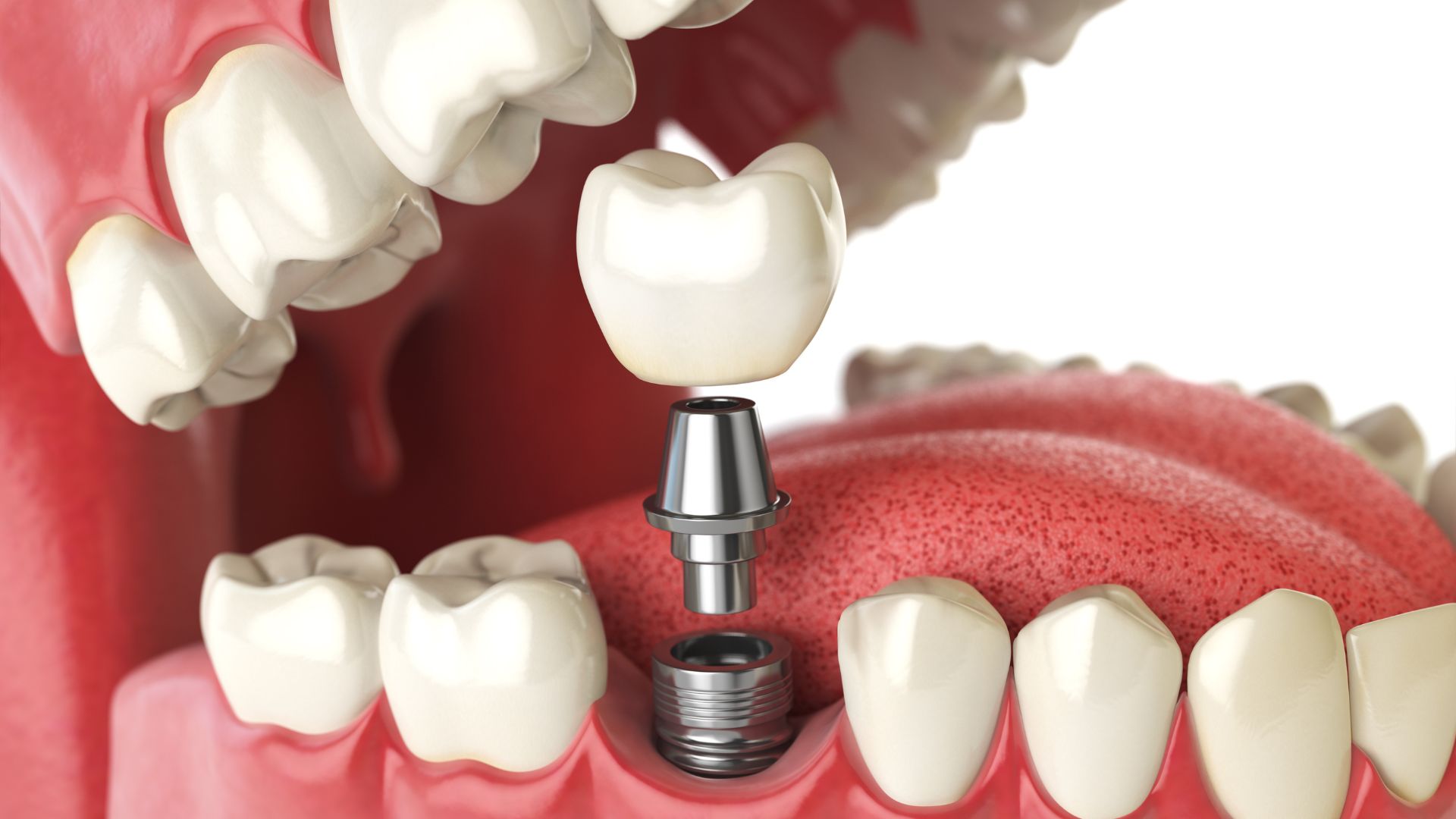Dental implants are one of the most reliable and long-lasting solutions for replacing missing teeth. They look natural, feel stable, and help preserve the bone beneath your gums. But one common question people ask is—how long do dental implants really last? And what happens if they fail?
In this article, we’ll explore the typical lifespan of dental implants, the factors that affect their longevity, the signs of failure, and what you can do to make them last longer. If you’re considering getting dental implants in Mira Road, this guide will help you understand the long-term investment involved and what to expect. For those exploring options with a dentist in Mira Road, this information can help you make an informed decision.
What Is the Average Lifespan of Dental Implants?
When placed correctly and cared for properly, dental implants can last 20 to 30 years or more. In many cases, they can last a lifetime. The titanium post—the part inserted into your jawbone—is highly durable and often remains intact for decades.
However, the crown (the visible part that looks like a tooth) typically needs to be replaced every 10 to 15 years due to wear and tear. That said, many crowns last longer with good care.
“On average, the titanium screw of a dental implant can last 25+ years, while crowns may need replacement every 10–15 years.” — British Dental Journal, 2023
What Causes Dental Implants to Fail?
Even though dental implants have a high success rate, failure can happen in certain situations. The failure can occur early (within months) or late (years after the implant was placed).
Some common reasons include:
- Poor Osseointegration: This is when the implant doesn’t fuse properly with the jawbone.
- Infection or Peri-implantitis: A form of gum disease that causes bone loss around the implant.
- Smoking: Reduces blood flow and increases the risk of complications.
- Diabetes or other medical conditions Can affect healing and long-term success.
- Improper placement: If the implant isn’t placed correctly, it may not hold well.
- Lack of oral hygiene: Plaque buildup can lead to gum inflammation and infection.
“Peri-implantitis is a leading cause of late dental implant failure. It involves progressive inflammation and bone loss around the implant.” — Indian Society of Periodontology.
Recognizing the Signs of Implant Failure

If you already have a dental implant, it’s essential to know what signs may indicate a problem. Some symptoms include:
- Pain or discomfort in the implant area
- Swelling or bleeding around the gums
- Pus or signs of infection
- Loosening of the implant or the crown
- Difficulty chewing or biting
These symptoms can develop slowly over time, so regular dental visits are essential for early detection and intervention.
“Smoking increases the risk of implant failure by up to 30%, particularly in the first year after surgery.” — National Institute of Dental and Craniofacial Research (NIDCR)
How to Maximize the Life of Your Dental Implants
Most dental implants fail not because of the implant itself but because of how it’s cared for after placement. To keep your implant strong and healthy for years, follow these habits:
- Brush and floss daily, especially around the implant.
- Visit your dentist at least twice a year for professional cleanings and checkups.
- Avoid chewing on complex objects like ice or pens.
- Manage underlying health conditions like diabetes or bone disorders.
- Wear a nightguard if you grind your teeth.
- Quit smoking or avoid tobacco in any form.
“According to studies, the success rate of dental implants is over 95% when placed by experienced professionals and maintained with proper care.” — Journal of Oral Implantology.
Dental Implant Cost vs. Longevity: Is It Worth It?
Dental implants may seem expensive at first, but when you look at the lifespan and benefits, they often turn out to be more cost-effective than bridges or dentures. Here’s a comparison:
Dental Implants vs. Other Tooth Replacement Options
| Treatment Option | Average Lifespan | Maintenance Needs | Initial Cost Range (INR) | Risk of Failure |
| Dental Implants | 20–30 years | Moderate | ₹30,000–₹60,000 per unit | Low |
| Dental Bridges | 5–10 years | High | ₹15,000–₹30,000 | Moderate |
| Removable Dentures | 3–5 years | Very High | ₹5,000–₹15,000 | High |
Prices are indicative and may vary based on individual clinical needs and location
When you factor in durability, comfort, and reduced need for replacements, implants often justify their cost over time.

When to Consider a Replacement or Revision
Not all implant failures require removal. In many cases, only the crown needs to be replaced. However, if the implant screw itself fails due to bone loss or infection, your dentist may recommend:
- Removing the implant
- Treating the infection or performing bone grafting
- Placing a new implant once healing is complete
Replacement procedures are more common with crowns than the titanium posts themselves.
Frequently Asked Questions
Can a dental implant last a lifetime?
Most implants can last 20–30 years, but lifetime longevity depends on factors like oral hygiene, lifestyle, and the quality of the implant procedure.
What happens if a dental implant fails?
Implant failure may involve mobility, infection, or discomfort. Treatment may include removal, bone grafting, and replacement after healing.
Are dental implants worth the cost?
While they have a higher upfront cost, implants often prove more durable and comfortable than bridges or dentures, offering long-term value.
What increases the risk of implant failure?
Smoking, poor oral hygiene, uncontrolled diabetes, and peri-implantitis are common contributors to implant complications or early failure.
Do dental crowns on implants need to be replaced?
Yes. Implant-supported crowns typically last 10–15 years and may need replacement due to wear, fracture, or loosening.
How can I ensure my dental implants last long?
Maintain excellent oral hygiene, attend regular dental checkups, avoid smoking, and protect your implants from trauma or grinding.
Conclusion
Dental implants are a long-term solution that, when properly placed and cared for, can serve you well for decades. Failures are rare but possible—and often preventable with the right lifestyle and oral hygiene habits. While the cost of a dental implant may seem high at first, it usually pays off in comfort, function, and durability.
Suppose you’re considering getting one or want to understand how. In that case, to better maintain your existing implant, it’s best to speak with an experienced dentist in Mira Road for a personalized evaluation.
Sources
- Indian Dental Association (https://ida.org.in)
- Journal of Oral Implantology
- British Dental Journal (2023)
- Indian Society of Periodontology
- NIDCR (National Institute of Dental and Craniofacial Research)






